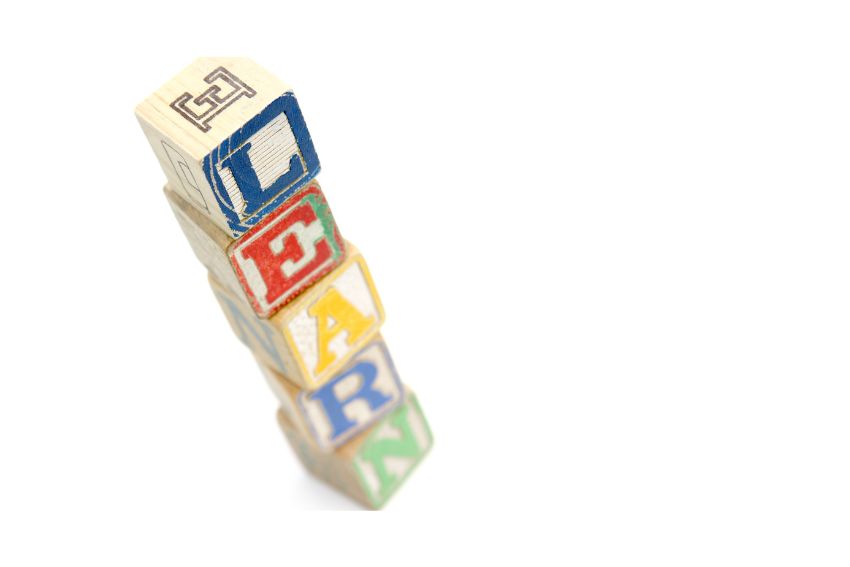Year 2 Common Exception Words: Practical Tips for Parents
Year 2 common exception words are an essential part of your child’s learning journey. Unlike regular words, these don’t follow standard phonetic rules, making them tricky to spell and read. Therefore, children need to recognise and memorise them instead of sounding them out phonetically.
Moreover, mastering these exception words year 2 is crucial for building your child’s confidence in reading and writing. They appear frequently in texts, and knowing them allows children to read more smoothly and write with greater accuracy.
As a parent, understanding what common exception words year 2 are and why they matter can help you better support your child. In this article, we will look at the Year 2 list of common exception words. Also, we will discuss why they are important and share fun ways to learn them effectively.

Year 2 Common Exception Words: Why They’re Essential
Have you ever noticed your child pausing or stumbling over certain words while reading or writing? Year 2 common exception words can be challenging, but mastering them is key to your child’s success in literacy.
Building Reading Fluency
Knowing these words helps children read more smoothly. Recognising these words quickly helps children focus on understanding the story or content. This way, they won’t struggle to decode each word. This fluency builds their confidence and improves their overall reading comprehension.
Enhancing Writing Skills
Learning common exception words year 2 is just as important for writing. When children can spell these tricky words correctly, their writing becomes more accurate and effective. Furthermore, it allows them to focus on expressing their ideas instead of getting stuck on spelling errors.
As a parent, helping your child learn these words will greatly improve their reading and writing skills. Let’s dive deeper into how you can help them succeed.
Year 2 Common Exception Words with Examples: All in One Place
Knowing which words to focus on makes teaching easier and more effective. Below, we’ve provided a full list of Year 2 common exception words, organised alphabetically. Each word is followed by a practical sentence that shows how it’s used in real life. This way, your child can see the words in context, which makes them easier to understand and remember.
Year 2 Common Exception Words (A-L)
| Word | Example Sentence | Word | Example Sentence |
| after | We went after school. | again | Read it again. |
| any | Do you have any toys? | away | She went away. |
| be | Be kind to others. | because | We stayed inside because it rained |
| before | Play before lunch. | both | Both shoes are new |
| break | Let’s take a break. | busy | She is busy now. |
| child | The child is playing. | children | The children are singing. |
| class | The class went outside. | clothes | She wears nice clothes. |
| cold | It is cold today. | come | Come here, please. |
| could | Could you help me? | door | Close the door. |
| even | He didn’t even try. | every | Every student is ready. |
| everybody | Everybody is happy. | eye | She has one eye. |
| fast | She runs fast. | father | My father is at work. |
| find | Find your book. | floor | The floor is clean. |
| for | This gift is for you. | friend | He is my friend. |
| from | She is from Paris. | full | The glass is full. |
| get | Let’s go outside. | go | Let’s go outside. |
| good | Let’s go outside. | have | I have a pet. |
| here | Come here quickly. | house | We have a big house. |
| how | How are you? | I | I like ice cream. |
| in | The book is in my bag. | is | He is my friend. |
| it | It is raining. | jump | Jump over the puddle. |
| just | I just finished. | keep | Keep the room tidy. |
| kind | She is kind to everyone. | laugh | They laugh together. |
| last | He was the last one. | made | She made a card. |
| learn | Let’s learn together. | many | There are many stars. |
| money | I saved some money. | must | You must read this. |
| near | The shop is near. | my | My toy is here. |
Year 2 Common Exception Words (M-W)
| Word | Example Sentence | Word | Example Sentence |
| never | We never eat late. | off | Turn off the light. |
| old | This is an old book. | only | She is the only one. |
| parents | My parents are here. | pass | Pass the pencil. |
| plant | We plant seeds outside. | past | We walked past the park. |
| pretty | She looks pretty today. | path | Follow the path. |
| prove | He will prove it. | people | Many people came. |
| should | You should help. | poor | The poor dog was cold. |
| some | Can I have some cake? | pretty | It’s a pretty day. |
| take | Take your time. | read | Read your book. |
| thank | Thank you for helping. | right | This is the right way. |
| there | There is a cat. | round | The table is round. |
| they | They are friends. | said | He said hello. |
| this | This is my favorite. | saw | I saw the movie. |
| time | It’s time for school. | school | We go to school. |
| today | Today is sunny. | shoul | You should eat lunch. |
| very | I’m very happy. | spell | Can you spell it? |
| water | Drink some water. | when | When is it time? |
| where | Where is my toy? | who | Who is there? |
| play | Play with your friend. | work | He goes to work. |
| would | I would love that. | would | Would you help me? |
What Challenges Do Children Face with Common Exception Words?
Have you noticed your child hesitating or stumbling over certain words? Year 2 common exception words can be tricky because they don’t follow standard phonics rules. This makes decoding them a challenge, as children can’t rely on sounding them out like they would with other words.
Decoding Difficulties
Many children struggle with these words because their spelling doesn’t match how they sound. For example, words like “because” or “beautiful” can confuse young readers, leading to frustration. Without understanding the patterns, it’s easy for children to make mistakes when reading or spelling these words.
Common Mistakes
It’s normal for children to substitute letters or mispronounce tricky words. For instance, they might spell “great” as “grate” because it matches the way they hear it. These mistakes happen because children naturally apply phonics rules, even when they don’t work.
Thus, as a parent, understanding these challenges can help you better support your child. With patience and practice, they can overcome these hurdles and feel more confident in mastering year 2 spelling words. Let’s explore some effective strategies to help them succeed.
Effective Strategies for Parents to Teach Year 2 Common Exception Words
Are you wondering how to help your child learn Year 2 common exception words? Using fun and steady teaching methods can significantly help. Here are some effective approaches to try:
Multisensory Approaches
Children learn best when they can engage multiple senses. Use colourful flashcards, visual aids, or even tactile activities like tracing words with their fingers. Interactive games, such as matching or word bingo, make learning fun while reinforcing the spelling of year 2 spelling words.
Repetition and Practice
Consistency is key when teaching common exception words year 2. Set aside time daily to practise these words in small groups. Incorporate them into your child’s daily routines, like reading signs or writing shopping lists. Repeating the words regularly helps strengthen their memory and builds confidence.
Contextual Learning
Teaching words in sentences or stories helps children understand their meaning and use. For example, create a short story with multiple Year 2 common exception words and read it together. Seeing the words in context makes them easier to remember and use correctly.
Plus, you can also incorporate reading books for children, as these often include common exception words. This allows children to see how the words are used naturally in sentences, helping them connect meaning to the words. Moreover, reading together regularly, whether it’s a storybook or a simple passage, builds familiarity and confidence with these tricky words.

Fun Ways to Practise Year 2 Common Exception Words at Home
If you are looking for creative ways to help your child practise Year 2 common exception words- you’ve come to the right place. In fact, fun and engaging activities can make a big difference in how well they retain these words. Here are some ideas to try at home:
Word Bingo
Furthermore, you can turn learning into a game with word bingo. Create bingo cards featuring common exception words year 2, and call out the words one by one. Your child can then check them off as they hear them. In this way, it’s fun and effective to mix play with practice.
Treasure Hunt
Hide word cards around the house or garden and let your child search for them. When they find a card, have them read the word aloud. This activity blends physical movement with learning, keeping them motivated.
Story Creation
First, encourage your child to write short stories using as many year 2 spelling words as possible. For example, they could write about their day or create a silly tale. This helps them understand how these words fit into sentences while sparking creativity.
Moreover, these activities make learning interactive and enjoyable for your child. By adding games to their routine, you will help them learn year 2 common exception words easily and confidently.
Top Resources Every Parent Needs for Year 2 Common Exception Words
Are you wondering how to make teaching common exception words easier and more engaging for your child? Well, having the right tools can make all the difference. Here are some resources to help parents support their child’s learning of common exception words in years 1 and 2.
Flashcards
Flashcards are great for building recognition and spelling skills. You can download and print flashcards with common exception words for year 1 and year 2. Use them for quick reviews or fun activities.
Word Mats
Word mats provide a handy visual reference for your child while they’re reading or writing. Platforms like Twinkl have colourful and easy-to-use word mats featuring all the essential words. These can be a great addition to your study area.
Printable Worksheets
Printable worksheets are great for practising at home. They have fun activities like fill-in-the-blanks, matching games, and word tracing to help with common exception words.
With these tools, you can create a fun and supportive learning space. This will help your child easily master year 1 and 2 common exception words.

Teacher-Approved Strategies for Teaching Common Exception Words
As a parent, it’s normal to wonder how to help your child master Year 1 and 2 common exception words effectively. Advice from educators and tailored approaches can make a big difference. Here are some expert-guided tips to guide you:
Advice from Educators
Teachers often suggest breaking the learning process into smaller, manageable steps. First, teach a few common exception words at a time, and go over them regularly to help your child remember.
They also suggest using these words in daily activities. This includes reading books or playing learning games. This helps make learning easy and natural.
Adapting to Learning Styles
As we know, every child learns in their own way, so it’s important to understand what works best for them. For example, Visual learners might enjoy using colourful flashcards or word mats. However, hands-on learners might prefer games or tracing words with their fingers. Meanwhile, auditory learners can practise by listening to the words and saying them out loud.
With these strategies, you can change your teaching to match your child’s learning style. This makes learning easier and more fun. With patience and consistency, your child will gain confidence in mastering common exception words Year 2.
Conclusion
As discussed above, helping your child master Year 2 common exception words plays a crucial role in their reading and writing journey. It’s normal for this process to take time, but with patience and consistent practice, your child will improve their skills and gain confidence.
As a parent, your support and encouragement are important. Celebrate every bit of progress, no matter how small, and make learning fun with creative activities.
In case your child needs extra help, Online Early Years English Language Tutors can provide personalised guidance.to match their needs. With your support and the right tools, your child will learn Year 1 and 2 exception words. This will help them become a confident reader and writer.
FAQs:
What are examples of common words?
Common words are those that appear frequently in everyday reading and writing. For instance: “the,” “and,” “is,” and “was.” These words are often introduced early in a child’s learning journey because of their frequent use in sentences.
What are common exception words in Year 2?
Common exception words in Year 2 are words that don’t follow standard phonics rules, making them tricky to sound out. For example: “because,” “beautiful,” and “children.” These words require memorisation as they can’t be decoded phonetically.
How many Year 1 and 2 common exception words are there?
There are 45 common exception words in Year 1 and 64 in Year 2, making a total of 109 words. These words are part of the National Curriculum and are essential for developing reading and writing skills.
What is the best way to teach year 2 common exception words?
The best way to teach these words is by using different methods:
- Use flashcards and word mats for visual learning.
- Practise regularly with fun activities like word bingo or treasure hunts.
- Teach the words in short stories or sentences.
- Repeat the words daily and encourage your child with praise.
These strategies make learning common exception words year 1 and 2 fun and effective for your child.
What words should Year 2 be able to read?
By Year 2, children should be able to read both phonetic words and common exception words year 2, like “great,” “climb,” and “parents.” They should also continue practising Year 1 common exception words to strengthen their reading foundation.
Consequently, learning both phonetic and exception words helps children read more fluently and prepares them for harder texts. At this stage, fluency is important for building confidence and understanding in reading.








